A “cat cuddler,” dog walker and animal lover from an early age, Dr. Lauren Adelman always suspected her career would follow the veterinary path. Fueled by her natural passion, the 26-year-old made it through a grueling, study-filled undergrad experience to be accepted to veterinary school an entire year early—meaning she received her doctorate, but never her bachelor’s degree! Now a Small Animal Emergency and Critical Care Intern at North Carolina State University, Lauren knows her job could never be called boring, but it can be taxing—both physically and emotionally.
Equipped with almost everything that a human hospital has and with furry patients from all over the eastern coast, NSCU deals with everything from suturing small wounds to performing open-heart surgery, and as a critical care intern, Lauren faces some of the most difficult cases. She is still baffled by getting the occasional question of whether veterinarians qualify as “real” doctors. With 12+ hour workdays, 2:00 a.m. emergency calls and the enduring possibility of facing terminal cases on the clock, it is nothing if not qualified.
Currently, Lauren is looking forward to the next chapter of her journey, her residency experience in Tennessee. Originally from Canada, she’s been no stranger to travel over the past several years and has found opportunities for personal growth in experiencing new cultures and submerging herself in new ventures. Her advice? “Be bold, and be okay with change.”
Her Starting Point
Many people find the transition between undergraduate and an advanced degree a bit daunting. Can you tell us about your journey between the two?
My experience transitioning from an undergraduate to an advanced degree was actually quite smooth. I think always knowing that I wanted to be a veterinarian and that I would eventually pursue post-graduate studies made things easier. I was prepared for the fact that vet school would be a lot of work, endless studying and that it would pretty much occupy my entire life for four years. I got into veterinary school after my third year of my undergraduate degree at the University of British Columbia, where I was majoring in immunology and microbiology. Since veterinary school was my goal from the beginning, I elected to forgo my bachelor’s degree for a Doctor of Veterinary Medicine one year earlier at age 24. You heard me—after all of this schooling and even though I am a doctor, I still don’t have my Bachelor’s of science!
The transition into internships and residency has been a bit more difficult as it has forced me to move several times and live in places where I know nobody! Leaving my best friends and family in Canada to move to Los Angeles was a big step, and then when I found out that I was moving to Raleigh (where I didn’t know a soul), it was a bit scary. Luckily, I have made great friends along the way and am growing as a person as I experience new cultures and ways of life. I actually just moved to Knoxville, Tennessee in order to start my residency in small animal internal medicine and am excited to embark on this latest leg of my journey.
You’ve been through a lot of schooling! Can you tell us about the most beneficial class you ever took? Are there any you wish you had taken? Any you wish you hadn’t?
The most beneficial classes that I’ve taken are anatomy and small animal internal medicine in veterinary school—this is the material that I use on a day-to-day basis. But that is a boring answer!
My favorite class during my undergraduate studies was probably Psych 101—I learned so much cool, practical information that I still like to bring up in conversation! Earth and Ocean Sciences were pretty cool, too.
As far as my least favorite class, that would be physics in undergrad—hands down. I never could get into forces or energy.
When did your passion for animals and veterinary science begin, and what first steps did you take in order to establish yourself as a pro?
I think almost every veterinarian you meet will tell you that they had a natural love for animals since they were young, and I am definitively no different. I grew up with a Bichon Frise named Sugar and all of my childhood friends will tell you that she was my bestie.
In junior high, I thought that I might want to be a marine biologist, but I soon realized that my true calling was dealing with dogs and cats. I started to volunteer as a dog walker and “cat cuddler” at the local SPCA in Calgary in high school and shadowed at a small animal clinic with my own dog’s veterinarian (thanks Dr. Joffe!).
During my undergraduate degree, I worked three jobs, two of which were volunteer status, in order to get enough experience for my veterinary school application. Getting into veterinary school is very competitive, especially in Canada where there are only five veterinary schools and only two that I could actually apply to. You need the grades and the experience, so I was quite a busy girl!
You could also say that veterinary medicine was in my blood—my uncle was a veterinarian in Winnipeg when I was young!
What do you love most about working at NC State? What is the school and department culture like?
I love Raleigh as a city and the people that live in North Carolina—they are wonderful! The clients here are unreal. They are so grateful and truly love their animals. The culture at NC State is fast paced and state of the art. NCSU is a leading veterinary school and the patient care is second to none. People don’t realize how far veterinary medicine has come. Like other veterinary schools, NCSU is a large, multi-disciplinary specialty referral and emergency hospital that receives patients from all over the eastern states. Departments include internal medicine, cardiology, neurology, radiology, ophthalmology, dermatology, oncology and so on. We have a large, fully equipped ICU that is staffed 24/7 with nurses and doctors. We have almost everything a human hospital has and do procedures ranging from wound repair to ventilation and open heart surgery. As a critical care intern, I get to take care of some of the most critical and complicated cases in the hospital.
It’s still amazing to me how many people ask if I am a “real doctor.” Most people think veterinarians just do checkups and vaccinations. As a practitioner in a specialty center, we treat everything from a critical animal who has been hit by a car and has sustained multiple life threatening injuries, to one who needs to be hospitalized in the ICU for acute kidney failure or septic peritonitis. It is always amazing to me how much people will spend on their animals—they are often considered as important as children!
Her Big Break
If we had the chance to peek at your schedule, what would an average day look like?
5:30 a.m. to 6:30 a.m.: Wake up, shower, attempt to look “cute” while wearing scrubs and crocs, feed my animal “children” (my two cats, Bronx and Jersey, and my chiweenie, Joey)
6:30 to 7:30 a.m.: Rush out the door, almost forget Joey, drop him off at “daycare” (aka the runs in general practice next door), coffee shop with the other house officers if there isn’t a case already waiting in the ER
7:30 a.m. to 5:00 p.m.: First case of the day, start with blood work and x-rays, triage bell rings, dog rushed to the back having seizures, give valium, stop seizures, referral call, dog on the way with multiple injuries after being hit by car, moment of stress, interrupted by another triage bell, cat hasn’t urinated for a day, unblock cat, triage bell, shih tzu in congestive heart failure, put in oxygen (cute owner, too bad I am wearing crocs). Next, 16-year-old cat not eating or drinking presents for euthanasia, cry with owners while performing euthanasia, eat a granola bar, other ER doctor arrives: FEW! Catch my breath. Finish work ups, hospitalize or discharge patients and sit down to write transfers for the next several hours.
8:00 to 10:00 p.m.: Get home, eat a bowl of Special K or Raisin Bran while watching an episode of Law and Order SVU, fall asleep on couch
2:00 a.m.: Call from intermediate care, dog had another seizure, advise to give remainder of phenobarbital load, go back to bed
REPEAT.
Tell us about your daily tasks and responsibilities as a veterinarian at NC State.
On a daily basis I am responsible for triaging and stabilizing emergency cases and performing a thorough work up to determine underlying cause and determine appropriate treatment or intervention. This often means that I am coordinating and consulting with other services in the hospital (radiology, neurology, cardiology, internal medicine, oncology, etc.).
When I am not on emergency and am the ICU room doctor, I am responsible for the care of all the hospitalized ICU patients and coordinating their care with their primary doctors.
What is the most challenging part of your job? How do you keep yourself from getting burnt out?
The most challenging part of my job is the emotional toll that the cases take. It is amazing how well you get to know the families and their pets. The majority of the owners I see consider their pets as part of the family and to them, they are children that never age. The stories can be heartbreaking. These animals mean everything to them.
Some cases are difficult but you can feel okay because you know that you are doing the very best thing you can for that patient by ending their suffering. The hardest cases are the young animals who you can’t help or the patients who you try your very hardest to fix but can’t make them better.
Last Christmas day I was working ER and had to euthanize a 7-year-old Chocolate lab who had pericardial effusion. He came with his mom, dad and older human brother who was 9. That was probably one of my saddest moments in the past year.
What are your strategies for remaining calm and focused in what can be a high-pressure (and high-emotion) position?
Focus on the patient and their family during times of stress. And in between, laugh with your co-workers.
Her Perspective
What skills are essential to working as a veterinarian? Do you think having some sort of specialization is important?
Communication is key. You could be the best doctor but if you cannot communicate what you are thinking in a language owners can understand you might as well go home. You’ll also need intelligence, problem-solving skills, efficiency, time-management, compassion and patience. Oh, and a strong stomach!
I think that veterinarians are much the same as human doctors in terms of specialization. The only way the industry as a whole can work effectively is by having both general practitioners and specialists for referral. Both are equally essential.
Translating passion into a career is tough. What advice would you give to women trying to figure this out?
Submerse yourself in every situation and don’t say "no" to any opportunity. Sometimes it is the small things that can drastically change the course of your life. Be bold and be okay with change.
What, if anything, do you wish you had known before you entered this occupation?
You can’t save them all and you need to be okay with it.
And finally, what do you wake up looking forward to? What’s next for your career?
When I wake up, I look forward to the surprises that my day will bring. My life is never routine because I never know what the day will bring. “Boring” is not a word I would ever use to describe my career!
What’s next? I am moving to Knoxville this summer to start my residency in internal medicine and I cannot wait! I will be there for the next three years, after which who knows! My ideal job would be to enter private practice and work as an internist at a small animal referral and emergency center with multiple specialties.
In terms of location, I don’t know where I will end up and I am okay with that. I take each day as it comes. Canada? East? West? Who knows!
You May Also Like
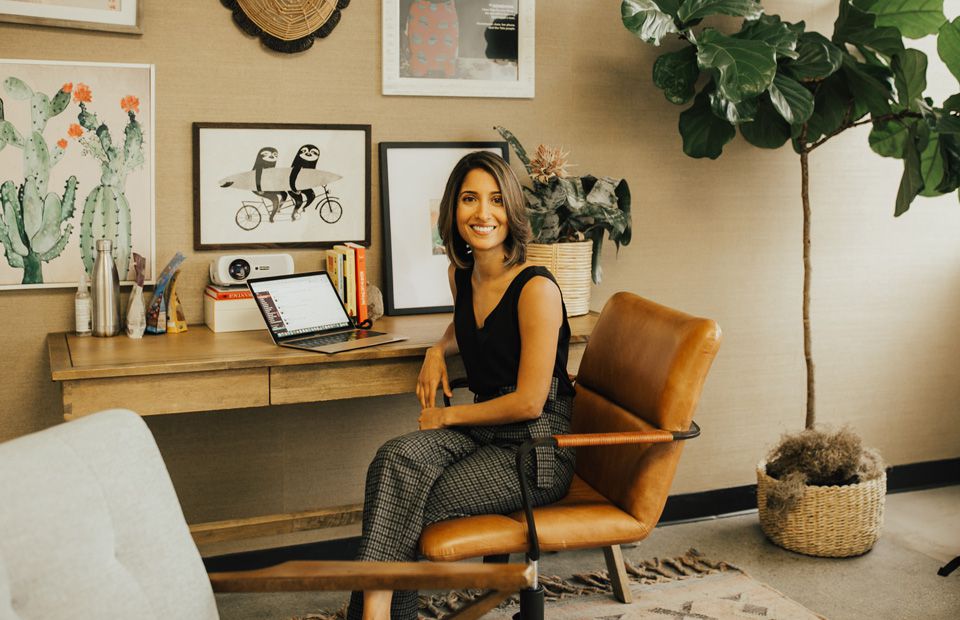
Technology
A Tech Founder on Why Being an Outsider Is a Strength
"I actually think most successful founders are rebels, of a sort. We’re trying to do new things and take on entrenched systems or ways of thinking. What makes me and our company different is that we’re outsiders."
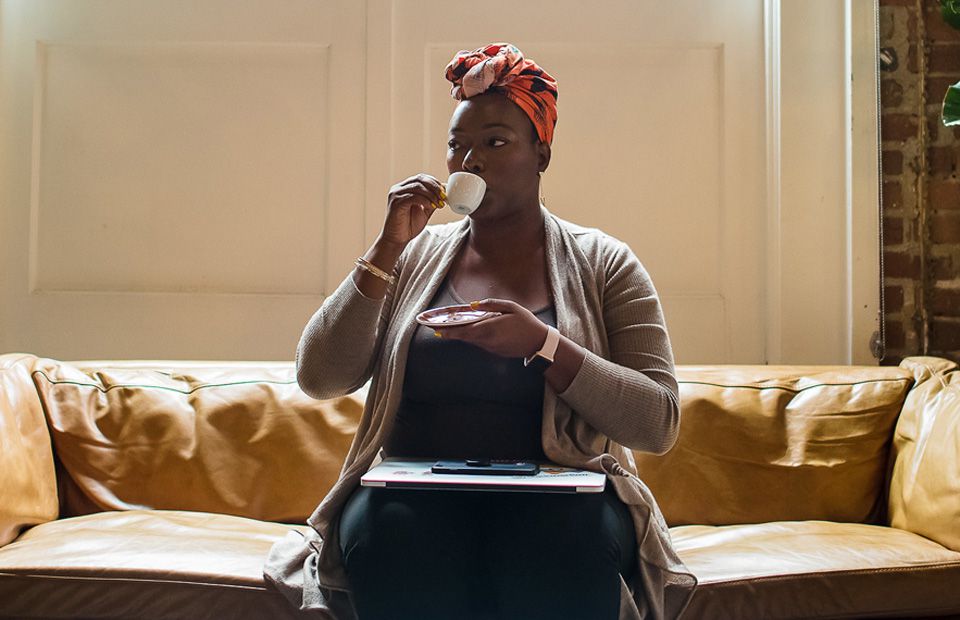
Technology
Omoju Miller—Tech Veteran, Leader, and Volunteer Advisor to the Obama Administration—on The Crucial Role of Creativity in the Tech Industry
"If you are in an environment where you feel marginalized, leave. Don’t try to change it. Go and look for a place that sees you and lets you be you."
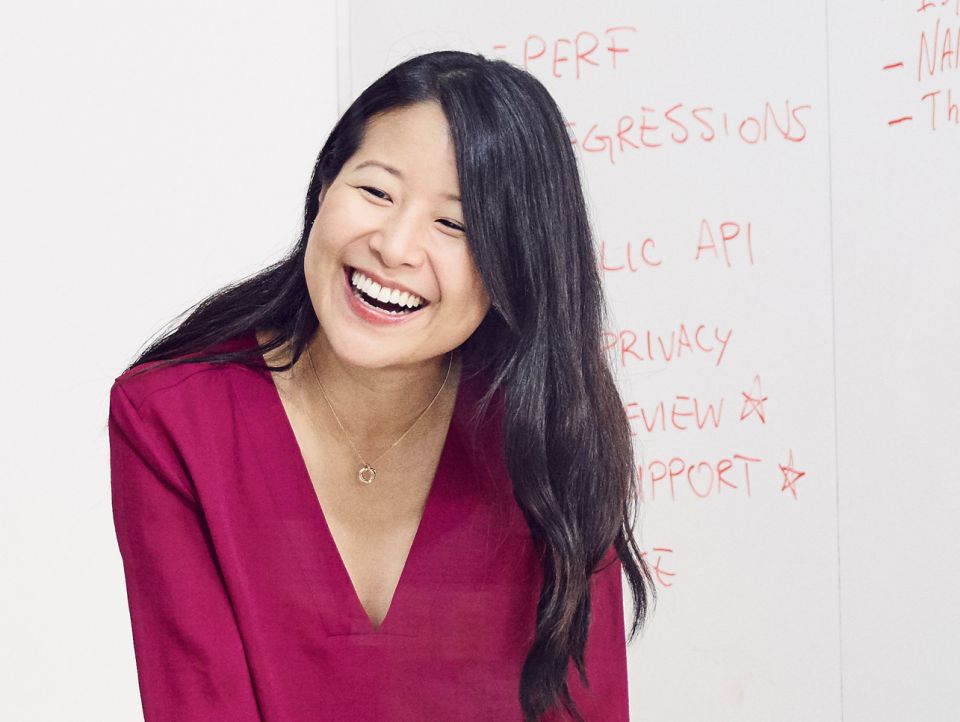
Technology
Sharing Stories as a Software Engineer
We sat down with Apple software engineer Emilie to learn about her day-to-day working at Apple along with what it takes to run the perfect meeting and her favorite ways to unwind.
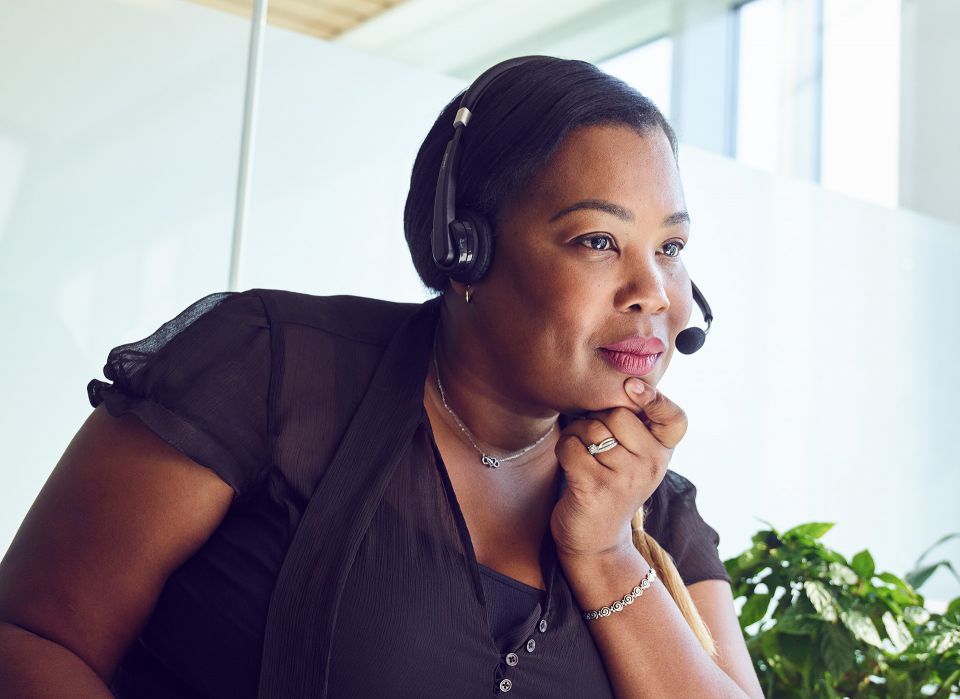
Technology
Creating Impact with Apple
We sat down with Apple's Senior Developer Partner Relations Advisor, Cris, to learn about what it takes to create a lasting impact within a large company. She shares a typical day in the life, her favorite book recommendations, and her top four tips to running a meeting.
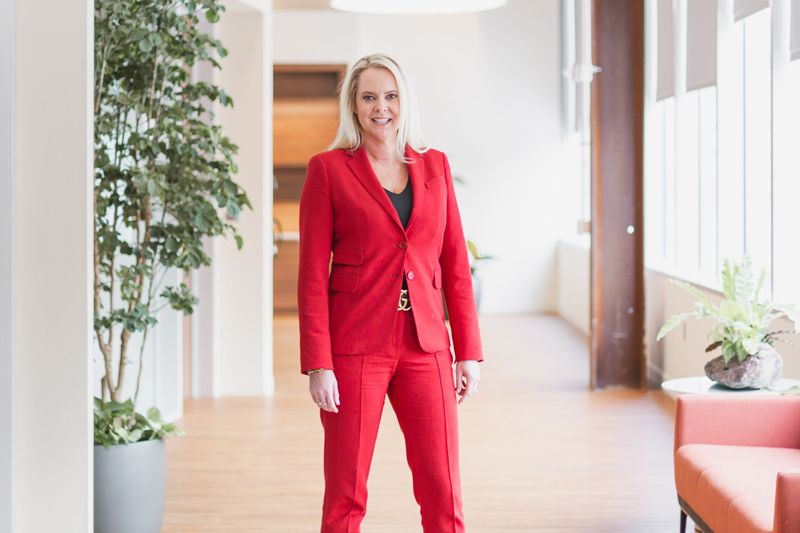
Technology
Salesforce’s Senior Vice President of Sales on Unconscious Bias, Failure, and Innovative Leadership
"Do not be afraid to fail, just bring your best self to the table."
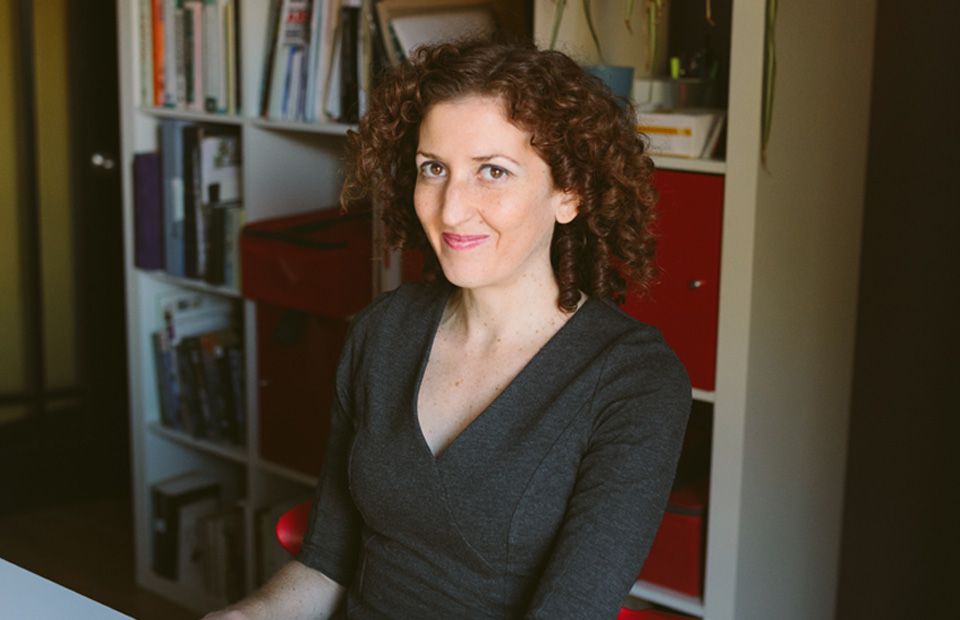
Technology
A Director of Engineering on Tech + Leadership
"I don’t believe in 'having it all'. If you spend more time on one thing, then you spend less time on another thing. All we can do is make choices on how to spend our time."
Get the Best Career Advice Delivered To Your Inbox
Join our newsletter to stay in the loop.
